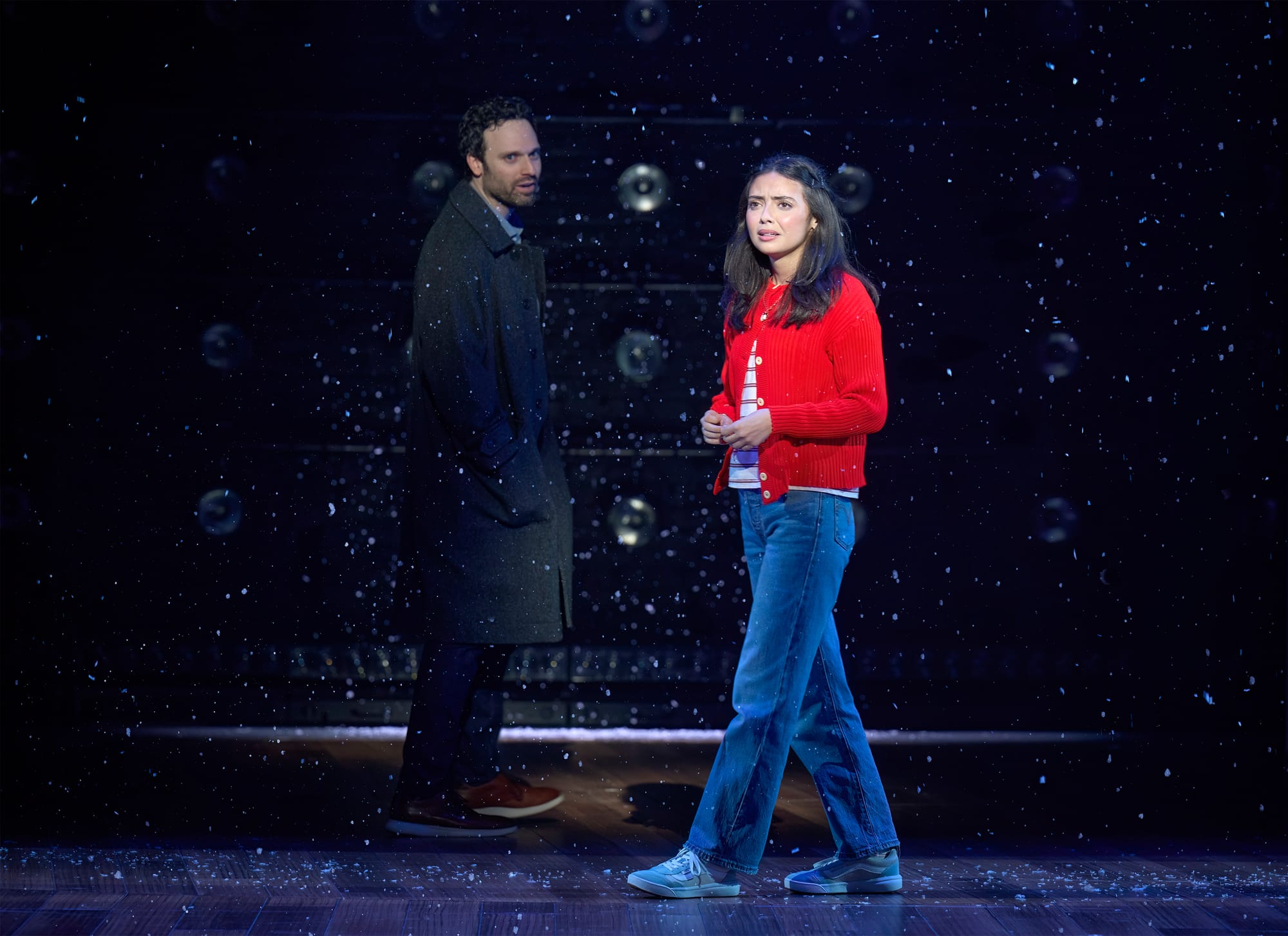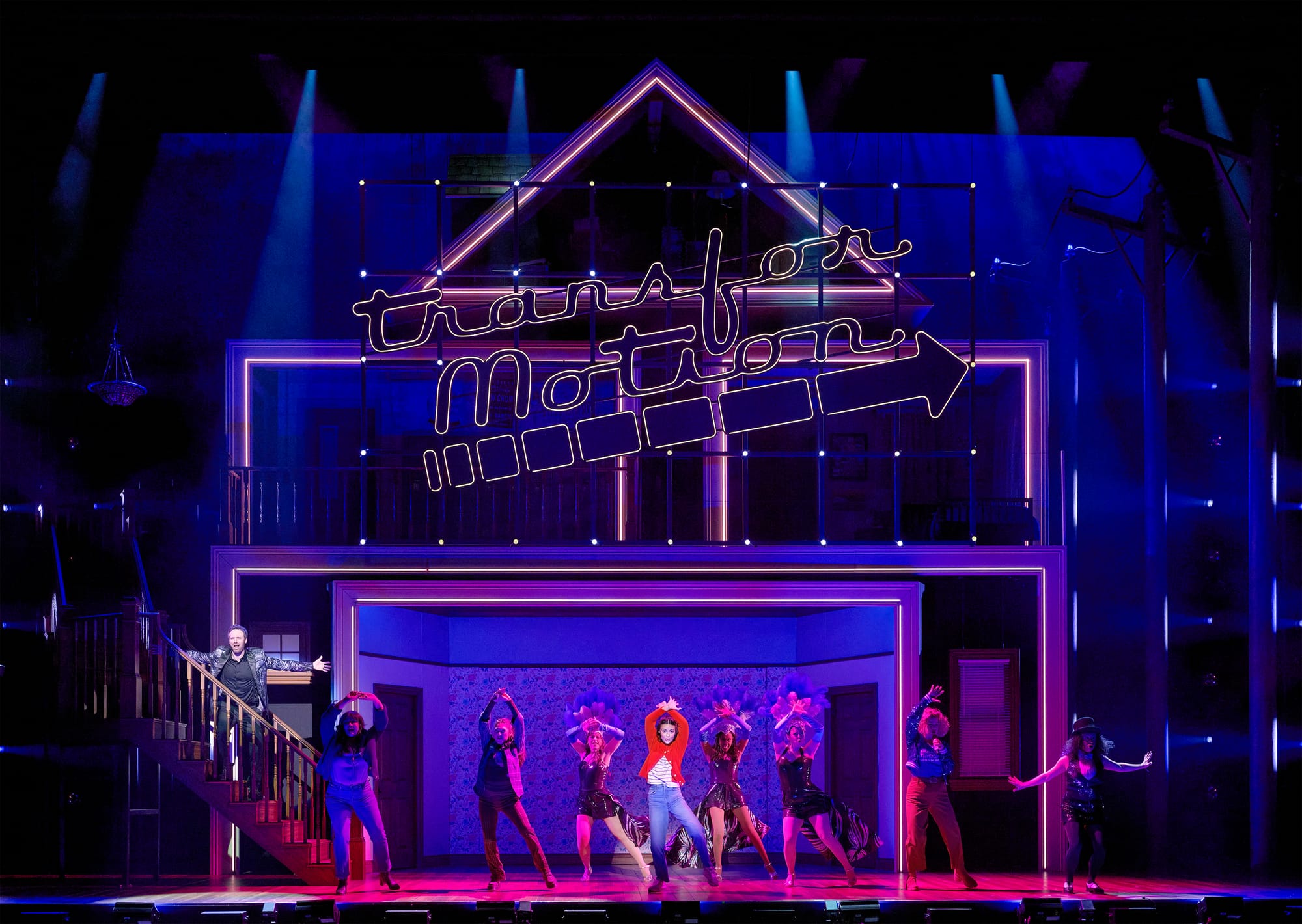Homegrown musical Life After receives a triumphant homecoming
The latest version of Britta Johnson's heartfelt musical about grief gets the epic production it deserves

Is there a life after for the Britta Johnson musical Life After (Rating: ✭✭✭✭)? Since it premiered at the Toronto Fringe in 2016, the show has already gone through years of development in multiple cities. Does it have more life in it?
Judging from last night’s absorbing and moving opening at one of the biggest houses in the city, I certainly hope so.
The house I’m referring to is the grand old CAA Ed Mirvish Theatre, formerly the Pantages.
But I’m also talking about the massive three-level set (by Todd Rosenthal) of a house that dominates Annie Tippe’s production. Handsomely furnished, and with a turntable that allows characters to quickly move between rooms, it gives Johnson’s intimate story of one young woman’s personal loss the scale and importance it deserves.
On the day of her 16th birthday, Alice (Isabella Esler) gets into a huge fight with her father, Frank (Jake Epstein), the author of a bestselling self-empowerment book. Although he’s supposed to be out west to host a conference about his book, Frank has stayed behind to at least enjoy a birthday dinner with his daughter, delaying his flight until that night. (Turns out Alice already has plans.)
But after leaving messages on her phone all day, he gets into a fatal car accident.
At first Alice, along with her older sister Kate (Valeria Ceballos) and her mother Beth (Mariand Torres), have to deal with the surreal nature of grief. Women they don’t know — fans of Frank’s book, it turns out — attend the reception; neighbours and friends, including Alice’s teacher Ms. Hopkins (Chilina Kennedy), ply them with tin-foil-covered casseroles; and students at Alice’s school treat her differently because she’s been touched by death.
Alice is obviously haunted by her last conversation with her dad, which she replays several times.
But during the lingering mourning period, she soon fixates on the details of his accident. His flight was at 8 pm, yet the fatal car crash was at 8:20 pm. Plus, he was in Meadowvale, driving in a different direction than the one from the airport or towards their home.
Did he miss his flight to stay with her? When Alice discovers her bestie Hannah (Julia Pulo) had been at a party in Meadowvale, and had left messages at her home to call her, she wants to know if Frank knew about the party and was hoping to surprise her there.

Everyone wants her to get on with her life. But Alice is young, and grieving in her own frantic way, and so her obsession with the mystery of her dad’s death feels authentic.
So does the speed and energy with which Tippe moves things around in the young woman’s universe. (One of the only missteps is the unveiling of a bench dedicated in Frank’s honour. That surely would have taken at least a month to happen, and I don’t think that much time elapses during the show.)
Johnson, who wrote the music, lyrics and book, has written a show that doesn’t follow the traditional rules or beats of the genre, and that gives it an unexpected freshness and spontaneity.
Although she began penning this material when she was a teen herself, there’s an emotional complexity to both the music and lyrics that is remarkably nuanced. (One quibble: I’m not sure about a sequence that echoes lyrics about blame from a song from Sondheim’s Into the Woods. Even if it’s an homage, it momentarily takes you out of the show.)
Alice, as her name suggests, finds herself in a world in which the regular rules of life don’t apply. This show chronicles her coming-of-age and acceptance, but there’s nothing pat or reductive about it.
And Esler is a real find, believably young and impulsive, but with a weight to her emotions that feels earned.
The other actors are just as nuanced, especially Epstein as a charming and charismatic man who might not be as perfect as he seems, and Torres, who captures her character’s grief and confusion in her own dignified way. Her rendition of a song about — of all things — wallpapering got the night’s biggest ovation.
This scene, by the way, is so beautifully written and directed that we can watch characters wordlessly paint a wall for a long time, and be moved because they’re all understandably lost in their own thoughts. A remarkable moment.
Pulo, who played Anne Boleyn in Six, brings much-needed comic relief to her scenes, particularly in her recreation of a disastrous party. Her delivery of a perfectly placed monologue near the end of the show feels just right.
Johnson makes fine use of a trio of actors (Kaylee Harwood, Arinea Hermans and Zoe O'Connor) who each play the Furies, like the vengeful Greek goddesses or chorus figures. They help change the show’s mood, and morph into everyone from that gaggle of inappropriate funeral guests to the mean girls at Alice’s school. Individually, they also get moments to pop, such as when Harwood plays a mother who tries to act as young as her daughter, or when Hermans becomes a bro who discusses his fascination with the universe at a party.
Apart from the final 10 to 15 minutes, which help resolve the plot in a satisfying way — and it’s here that Japhy Weidman’s lighting design finally gets to shine — my favourite moment comes in the middle.
It’s a fantasy sequence in which Alice imagines the conference Frank missed, and Tippe and choreographer Ann Yee stage it like a big, glitzy Vegas number. Led by a jazzy hook crooned effectively by Epstein, the number works on several levels and, as all the people in Alice’s life get up to sing and dance, becomes more and more complex.
A couple of weeks ago, in a preview piece I wrote about the show’s development, Tippe admitted: “Our design is big and ambitious, because I think an original musical deserves that. Also, why shouldn’t a story about a 16-year-old girl get something that feels epic?”
Amen.
Life After continues at the CAA Ed Mirvish Theatre until May 10. Ticket info here.
